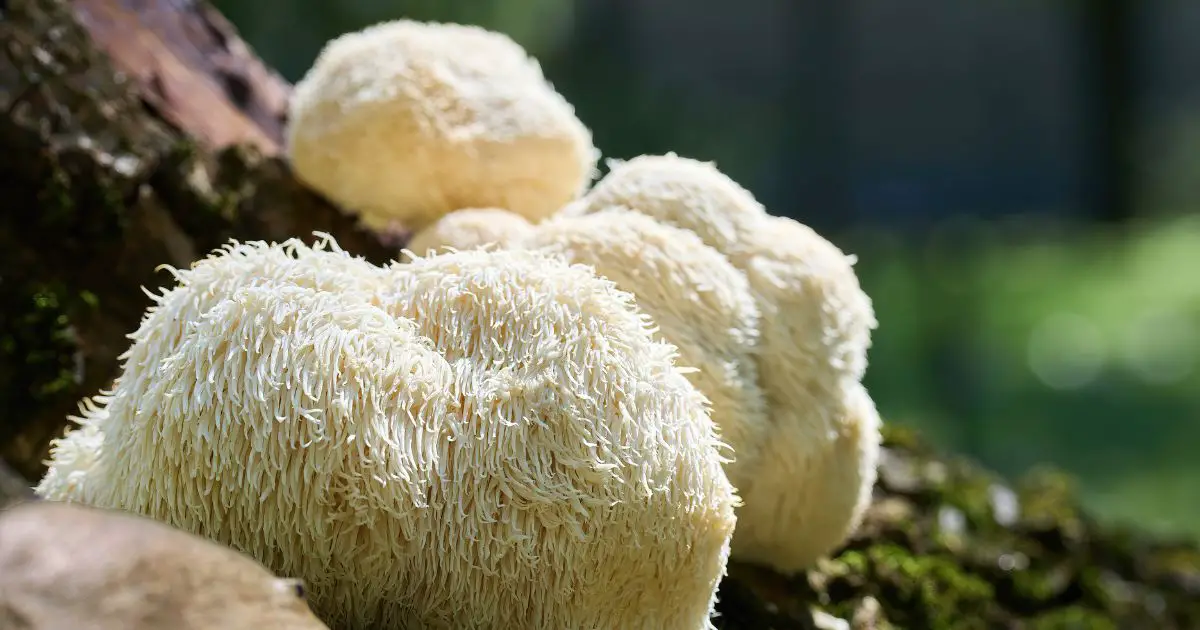Attention-deficit/hyperactivity disorder (ADHD) affects millions of people worldwide, creating significant challenges with attention regulation, executive functioning, emotional regulation, and impulse control. While conventional treatments like stimulant medications and behavioral interventions remain first-line approaches, growing research suggests that certain mushrooms—both psychedelic and non-psychedelic varieties—may offer promising complementary approaches for addressing ADHD symptoms. This article explores the current understanding of how different mushrooms may interact with ADHD neurobiology and the emerging evidence for their potential benefits.
Understanding ADHD from a Neurobiological Perspective
Before examining how mushrooms might help with ADHD, it’s important to understand the neurobiological underpinnings of this condition:
Key Neurobiological Features of ADHD
Current research identifies several interrelated neural patterns in ADHD:
- Dopamine and Norepinephrine Dysregulation: ADHD involves altered functioning in these neurotransmitter systems, which play crucial roles in attention, motivation, reward processing, and executive functions.
- Executive Function Network Differences: People with ADHD often show altered activation and connectivity in brain networks responsible for planning, working memory, cognitive flexibility, and inhibitory control.
- Default Mode Network (DMN) Dysregulation: The DMN, associated with self-referential thinking and mind-wandering, often shows inappropriate activation during tasks requiring focused attention in those with ADHD.
- Reduced Connectivity Between Networks: ADHD frequently involves decreased communication between brain networks that should work together for optimal cognitive and emotional
- Delayed Cortical Maturation: Neuroimaging studies show that certain brain regions, particularly in the prefrontal cortex, may develop more slowly in individuals with
- Differences in Reward Processing: Many with ADHD show alterations in reward sensitivity and motivation, particularly for tasks with delayed
These neurobiological differences create the characteristic symptoms of ADHD: difficulties with sustained attention, organization, task completion, emotional regulation, and impulse control.
Psychedelic Mushrooms and ADHD
Psychedelic mushrooms containing psilocybin have generated significant scientific interest for their potential neurological effects that may address some of the underlying mechanisms of ADHD:
Psilocybin’s Effects on Relevant Neural Mechanisms
Research on psilocybin, while not specifically focused on ADHD in most studies, has revealed several effects potentially relevant to ADHD neurobiology:
- Default Mode Network Modulation: Psilocybin temporarily disrupts the default mode network, potentially resetting problematic patterns of activation and Since DMN dysregulation plays a role in ADHD, this reset could potentially improve attention regulation.
- Increased Network Connectivity: Psilocybin promotes increased communication between brain networks that typically don’t interact This could potentially address the reduced connectivity between networks observed in ADHD.
- Neuroplasticity Enhancement: Psilocybin stimulates the growth of new neural connections through BDNF (Brain-Derived Neurotrophic Factor) promotion and dendritic spine This enhanced neuroplasticity might support development of improved executive function circuits.
- 5-HT2A Receptor Stimulation: Psilocybin primarily works by activating serotonin 5-HT2A receptors, which indirectly influence dopaminergic systems implicated in
- Long-term Network Reorganization: Studies suggest psilocybin can lead to lasting changes in brain network organization after the acute effects subside, potentially allowing for sustained improvements in cognitive functioning.
Research on Microdosing for ADHD
While research specifically examining psilocybin for ADHD remains limited, interest in microdosing (taking sub-perceptual doses) has grown substantially:
Anecdotal and Survey Reports
Numerous self-reports and observational surveys suggest potential benefits of psilocybin microdosing for ADHD symptoms:
Improved focus and concentration Enhanced ability to enter flow states Reduced distractibility
Better emotional regulation
Increased motivation for less stimulating tasks Improved executive functioning in daily activities
A 2018 study by Prochazkova et al. found that microdosing psychedelics was associated with improvements in convergent and divergent thinking, which could benefit problem-solving abilities often affected by ADHD.
Proposed Mechanisms for Microdosing Benefits
Several mechanisms might explain reported benefits:
Subtle modulation of default mode network activity without full disruption Mild enhancement of dopamine signaling through indirect pathways Increased BDNF expression supporting ongoing neuroplasticity
Improved connectivity between brain networks involved in attention and executive function Subtle enhancement of cognitive flexibility
Current Research Limitations
Despite promising anecdotal reports, several important limitations exist:
Few controlled clinical trials specifically examining psilocybin for potential placebo effects in self-reported microdosing benefits Individual variation in responses
Lack of standardized protocols for dosing and frequency Limited long-term safety data for regular microdosing
Full-Dose Psilocybin Sessions and ADHD
Beyond microdosing, some preliminary evidence suggests that full therapeutic doses of psilocybin in structured settings might benefit ADHD through several mechanisms:
- Psychological Insights: Full psilocybin experiences can provide insights into patterns of thinking and behavior, potentially helping individuals recognize and address unproductive patterns related to their ADHD.
- Network “Reset”: A full psilocybin experience may more dramatically reset dysfunctional network patterns that have become entrenched in
- Enhanced Neuroplasticity Window: Research indicates that psilocybin creates a period of enhanced neuroplasticity that, when combined with integration practices, may allow for more effective implementation of ADHD management
- Addressing Comorbid Conditions: Many people with ADHD experience comorbid depression, anxiety, or trauma, which emerging research suggests may respond well to psilocybin-assisted therapy.

Non-Psychedelic Functional Mushrooms and ADHD
Beyond psychedelic mushrooms, several functional (non-psychedelic) mushroom species show promise for addressing aspects of ADHD through different mechanisms:
Lion’s Mane (Hericium erinaceus)
This mushroom has generated particular interest for cognitive support:
Relevant Research Findings
Stimulates Nerve Growth Factor (NGF) and Brain-Derived Neurotrophic Factor (BDNF), supporting neuronal health and potentially enhancing neuroplasticity
May improve myelination of nerve cells, potentially enhancing signal transmission speed in neural networks
Shows neuroprotective effects that could support long-term brain health
Demonstrates anti-inflammatory properties that may reduce neuroinflammation, which some research links to ADHD
Potential Benefits for ADHD
Enhanced focus and concentration through improved neural network efficiency
Better memory function, potentially addressing working memory deficits common in ADHD Support for executive function through enhanced prefrontal cortex function
Potential long-term neuroprotective effects that may complement other ADHD treatments
A 2020 study by Chong et al. found that Lion’s Mane supplementation improved mild cognitive impairment in adults, suggesting potential benefits for the cognitive aspects of ADHD, though specific ADHD studies are still needed.
Cordyceps (Cordyceps militaris/sinensis)
This adaptogenic mushroom may address energy and motivation aspects of ADHD:
Relevant Research Findings
Increases ATP production, potentially providing more consistent energy without the peaks and crashes some experience with stimulants
May enhance oxygen utilization, supporting brain metabolism
Shows anti-fatigue properties that could help with the exhaustion some ADHD individuals experience from constant attentional efforts
Demonstrates some dopaminergic effects that might support motivation and reward processing
Potential Benefits for ADHD
More consistent energy levels throughout the day Enhanced motivation for task initiation and completion
Improved physical and mental stamina for sustained attention
Potential support for dopamine function without the side effects of stimulant medications
Reishi (Ganoderma lucidum)
This mushroom may address stress and sleep aspects that often complicate ADHD:
Relevant Research Findings
Contains triterpenes and polysaccharides with anxiolytic effects Demonstrates sleep-enhancing properties in some studies
Shows immunomodulatory effects that may help regulate inflammation May support adrenal function and stress hormone balance
Potential Benefits for ADHD
Better stress management, potentially reducing the exacerbation of ADHD symptoms under stress Improved sleep quality, which is crucial for cognitive function and often disrupted in ADHD Potential regulation of inflammatory processes that may contribute to cognitive symptoms Support for overall resilience and adaptive capacity
Chaga (Inonotus obliquus)
This mushroom may support overall brain health and stress management:
Relevant Research Findings
Contains powerful antioxidants that can protect neural tissue from oxidative stress
Shows anti-inflammatory properties that may support cognitive function Demonstrates adaptogenic effects for better stress response
May support balanced immune function
Potential Benefits for ADHD
Protection against oxidative stress that can impair cognitive function Support for overall brain health and function
Enhanced resilience against stress-induced worsening of ADHD symptoms Potential anti-inflammatory effects that may support neural network efficiency
Gestalt in practice
Practical Considerations and Implementation
For those interested in exploring mushrooms as complementary approaches for ADHD, several important considerations should guide decision-making:
Integration with Conventional Treatments
Mushroom approaches should generally be considered complementary rather than replacement strategies:
- Medication Interactions: Consult healthcare providers about potential interactions between mushrooms and ADHD medications or other
- Complementary Approach: Most individuals benefit from maintaining conventional treatments while carefully exploring mushroom supplements as
- Monitoring Effects: Systematic tracking of symptoms and functioning helps identify whether mushroom approaches are providing genuine
- Comprehensive Plan: Most effective ADHD management involves multiple strategies, including behavioral interventions, environmental modifications, and potentially appropriate
Non-Psychedelic Mushroom Implementation
For functional mushrooms like Lion’s Mane, Cordyceps, Reishi, and Chaga:
- Quality Sourcing: Select products from reputable companies with third-party testing for purity and
- Proper Extraction: Look for dual-extracted products that provide both water-soluble and fat-soluble compounds for maximum benefit.
- Consistent Use: Most functional mushrooms require consistent use over weeks or months before significant benefits emerge.
- Stacking Approach: Some benefit from combining multiple mushroom species that address different aspects of ADHD—for example, Lion’s Mane for cognition with Reishi for sleep and stress
- Start Low, Go Slow: Begin with lower doses and gradually increase to assess tolerance and
Microdosing Considerations
For those considering psilocybin microdosing where legally available:
- Legal Status: Psilocybin remains illegal in many Some locations have decriminalized or legalized its use, but legal risks should be carefully considered.
- Protocol Selection: Common protocols include Fadiman’s approach (one day on, two days off) or Stamets’ stack (four days on, three days off, often combined with Lion’s Mane and niacin).
- Finding Minimum Effective Dose: Start with very low doses (typically 05-0.1g of dried mushroom) and adjust based on subtle effects, staying well below perceptual thresholds.
- Journaling and Tracking: Keep detailed records of doses, effects, and changes in ADHD symptoms to identify patterns and optimal approaches.
- Integration Practices: Combine microdosing with meditation, cognitive exercises, or therapy to maximize potential benefits for ADHD
- Cycling: Most experts recommend periods of abstinence (typically 2-4 weeks) after 4-8 weeks of microdosing to prevent tolerance development.
Full-Dose Session Considerations
If exploring full therapeutic doses of psilocybin where legally available:
- Proper Setting: Work with experienced guides in appropriate therapeutic settings rather than recreational contexts.
- Preparation: Engage in preparatory sessions to establish intentions specific to ADHD patterns and
- Integration Support: Arrange for integration therapy following experiences to translate insights into practical ADHD management
- Medication Management: Consult with healthcare providers about managing any ADHD medications around sessions, as some may interact with
- Therapeutic Framework: Consider how insights gained might inform behavioral strategies, environmental modifications, and relationship patterns relevant to
Three Practical Approaches for Exploring Mushroom Benefits
For those interested in exploring the potential benefits of mushrooms for ADHD, here are three structured approaches that can be implemented with appropriate guidance:
Approach 1: Functional Mushroom Daily Stack
This approach focuses exclusively on non-psychedelic mushrooms for cognitive and neurological support:
Morning Protocol:
- Lion’s Mane extract: 1000-2000mg for cognitive enhancement and neuroplasticity
- Cordyceps extract: 500-1000mg for energy and motivation support
- B-vitamins: Particularly B6, B9, and B12 which support neurotransmitter production
- Optional: Omega-3 fatty acids for additional neural membrane support
Evening Protocol:
- Reishi extract: 1000mg for stress reduction and sleep support
- Magnesium glycinate: 200-400mg to support GABA production and relaxation
- Optional: Chaga extract (500mg) for additional antioxidant support
Implementation Guidelines:
Begin with half doses for one week to assess tolerance
Maintain consistent daily use for at least 8-12 weeks before evaluating effects
Track cognitive function, energy levels, sleep quality, and ADHD symptoms systematically Consider cycling specific mushrooms every 3 months to prevent adaptation
This approach offers a low-risk, legal option that may provide gradual improvements in cognitive function, energy regulation, and stress management—all relevant to ADHD management.
Approach 2: Cognitive Enhancement Journaling Practice
This approach combines functional mushrooms with structured cognitive exercises to potentially enhance executive function:
Daily Supplementation:
Lion’s Mane extract: 1500mg daily
Alpha-GPC or CDP-Choline: 300mg to support acetylcholine production Vitamin B complex for neurotransmitter support
Structured Practice (20 minutes daily):
- Take supplements 30-60 minutes before practice session
- Begin with 2 minutes of focused breathing to activate executive networks
- Complete 5 minutes of working memory training (such as dual n-back or digit span exercises)
- Spend 8 minutes on task switching exercises that challenge cognitive flexibility
- Conclude with 5 minutes of reflection journaling about: Quality of focus during exercises
Strategies that helped maintain attention Connections to daily ADHD challenges
Subtle changes in cognitive function over time
Implementation Guidelines:
Practice at the same time daily for optimal neurological training Gradually increase difficulty of cognitive exercises as capacity improves
Consider adding Cordyceps (500mg) if motivation for daily practice is challenging
Continue for minimum 12 weeks while tracking changes in both exercise performance and daily ADHD symptom management
This approach leverages the potential neuroplasticity-enhancing effects of Lion’s Mane to potentially maximize benefits from cognitive training that targets ADHD-related executive function challenges.
Approach 3: Comprehensive Mushroom Integration Protocol
This more advanced approach integrates multiple mushroom species with lifestyle modifications for synergistic effects:
Daily Foundation:
Mushroom complex including Lion’s Mane, Cordyceps, Reishi, and Chaga (following product-specific dosing)
Omega-3 fatty acids (1000-2000mg EPA/DHA)
Vitamin D3 (2000-5000 IU) with K2 for neurological support
Circadian Optimization:
Morning sunlight exposure (10-15 minutes) while taking morning supplements Blue-light blocking glasses 2-3 hours before bedtime
Reishi or Turkey Tail extract 60 minutes before sleep
Consistent sleep/wake schedule to support executive function
Movement Integration:
20-30 minutes of moderate cardio exercise 3-4 times weekly
Brief movement breaks (2-3 minutes) every 25 minutes during focused work Consider combining Cordyceps supplementation with exercise for enhanced effects
Nutritional Support:
Anti-inflammatory, polyphenol-rich diet emphasizing colorful vegetables and berries Intermittent fasting (12-16 hour overnight window) if appropriate for individual
Minimization of processed foods and refined carbohydrates that may exacerbate attention fluctuations
Implementation Guidelines:
Implement changes gradually over 2-3 weeks rather than all at once
Use habit-stacking techniques to incorporate new elements into existing routines Track not only ADHD symptoms but also energy levels, sleep quality, and mood Consider quarterly lab testing including inflammatory markers and nutrient status
This comprehensive approach addresses multiple factors that influence ADHD symptoms while using functional mushrooms as core biological support for attention, energy regulation, and neuroplasticity.
Future Research Directions
While current evidence shows promise, several important research areas need development:
- Controlled ADHD-Specific Studies: Randomized controlled trials specifically examining various mushrooms’ effects on ADHD symptoms
- Biomarker Identification: Research identifying which individuals with ADHD might benefit most from different mushroom approaches
- Optimal Protocols: Studies determining ideal dosing, timing, and combinations for ADHD-specific benefits
- Long-Term Effects: Research on the sustained benefits and safety of various mushroom approaches for ADHD over extended periods
- Integration Methods: Studies examining how to best combine mushroom approaches with conventional ADHD treatments and behavioral interventions
- Developmental Considerations: Research addressing differences in mushroom effects and safety across different age groups with ADHD
Conclusion: A Complementary Approach
The exploration of both psychedelic and functional mushrooms for ADHD represents an emerging field with promising potential. While none of these approaches should be considered replacements for evidence-based ADHD treatments, they may offer valuable complementary strategies for addressing the complex neurobiological patterns underlying ADHD.
The multi-faceted nature of ADHD often benefits from equally multi-faceted approaches. Mushrooms— with their diverse effects on neuroplasticity, network connectivity, neurotransmitter function, and stress regulation—may provide unique tools that address aspects of ADHD not fully managed by conventional treatments alone.
As research continues to evolve, those interested in exploring these approaches should do so with appropriate medical guidance, careful attention to legal considerations, and a commitment to systematic evaluation of benefits and challenges. When approached thoughtfully as part of a comprehensive treatment strategy, mushrooms may offer new pathways for enhancing cognitive function, emotional regulation, and overall wellbeing for those navigating the complex terrain of ADHD.

Keywords: Bury Expectations, psychotherapy, parents, parental trauma, somatic experiencing, Licensed therapist near me in Manhattan NYC, Affordable therapy services in New York State, Holistic psychotherapy sessions in NYC, Somatic Experiencing therapy for trauma recovery in New York City, NARM therapy in Brooklyn, Licensed couples therapy in Manhattan, Gestalt therapy near me in NYC, Marriage counseling in Queens NYC, Therapy for anxiety treatment in NYC, Experienced psychotherapist in New York, Licensed psychotherapist near me in NYC, Somatic Experiencing therapy sessions in New York, Trauma therapy and counseling in Manhattan, Gestalt therapy sessions in New York City, Therapy sessions for emotional regulation in New York, Trauma therapy near me in Brooklyn New York, Licensed mental health therapist in Manhattan NYC, Depression therapy in New York, New York City therapist experienced in PTSD treatment
Contact us: Feel and Heal Therapy Office
For companies: Creative Manager
What does Somatic Experiencing therapy offer?








